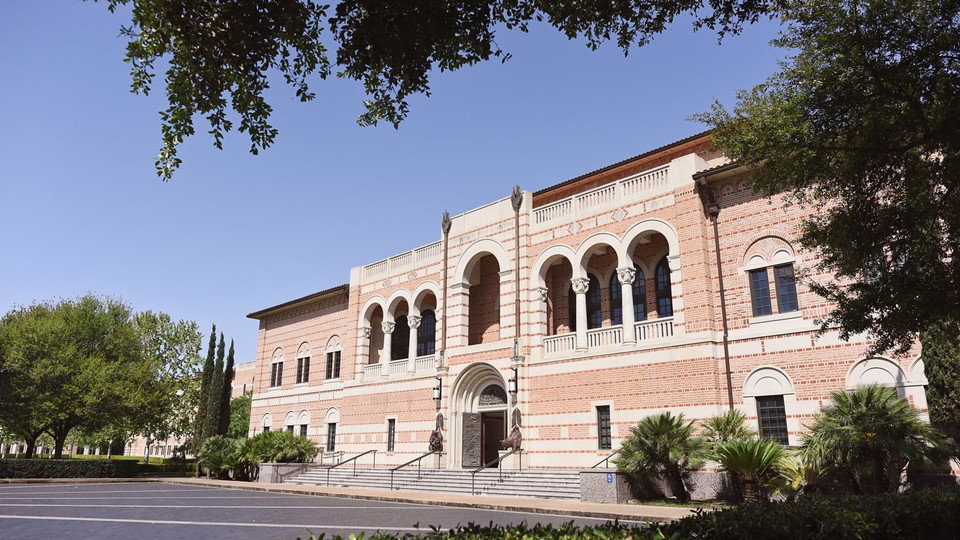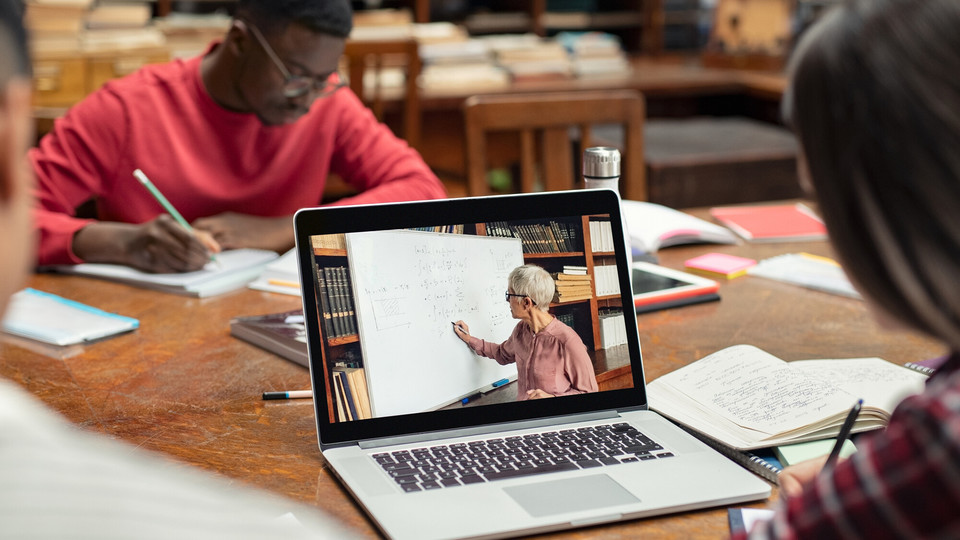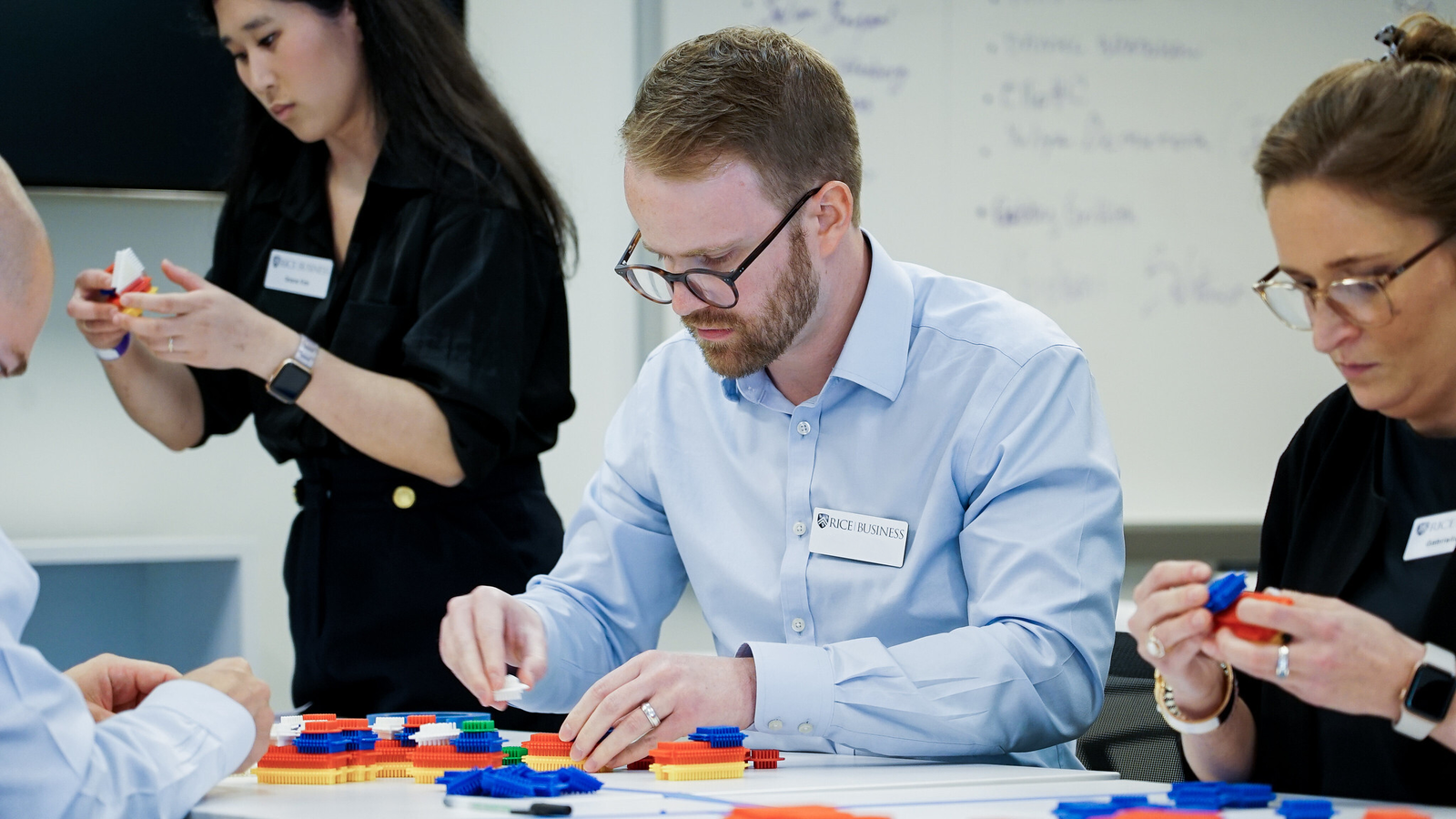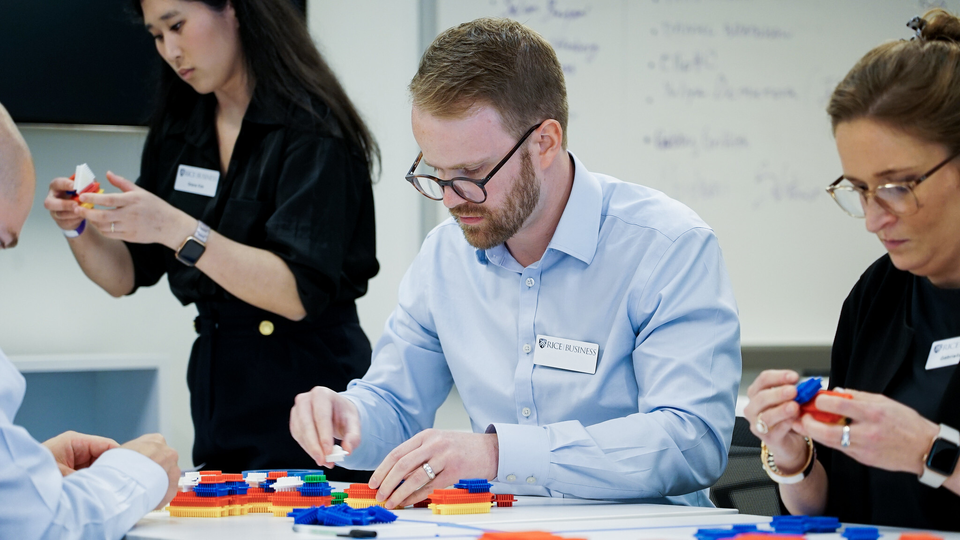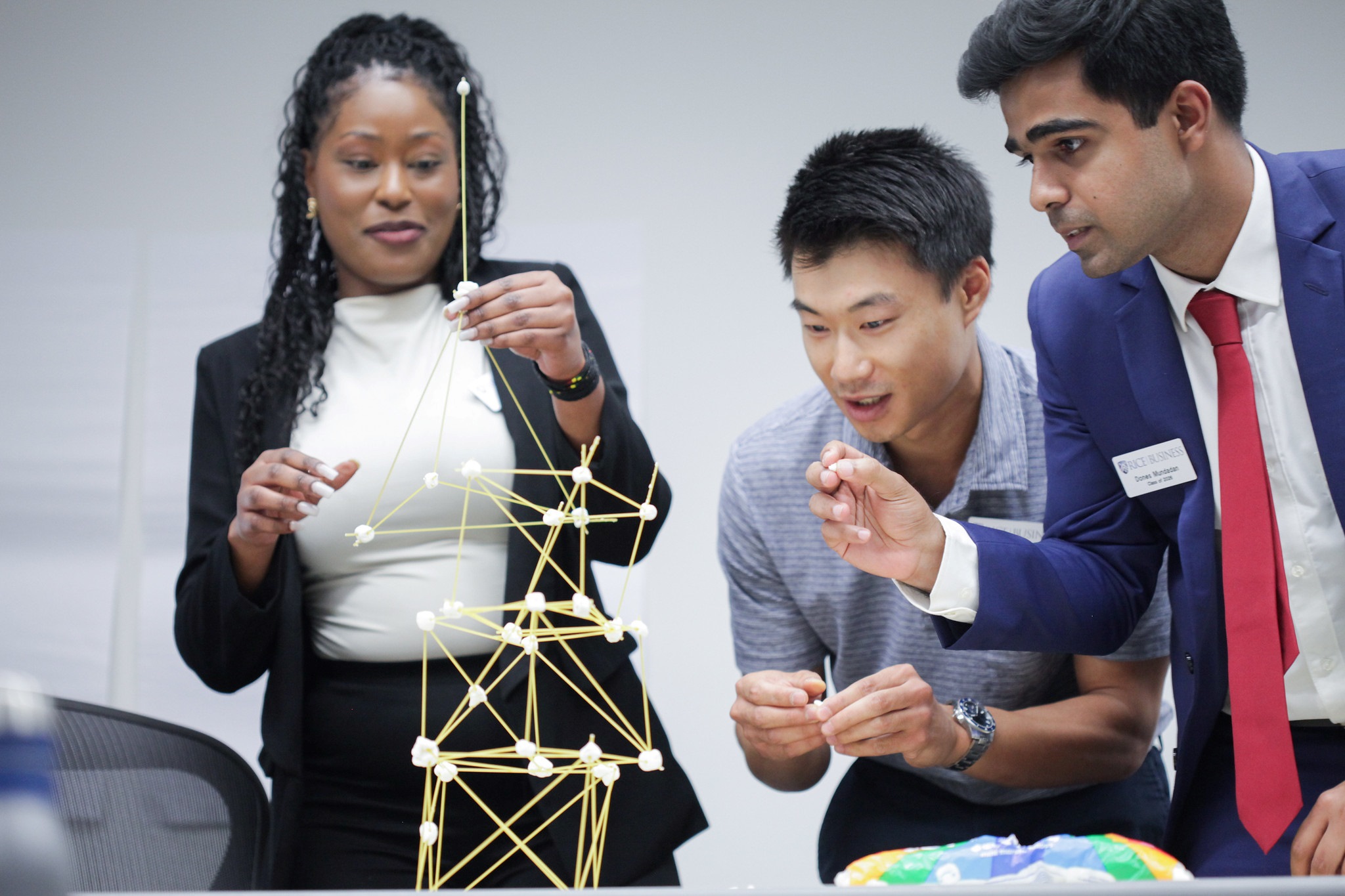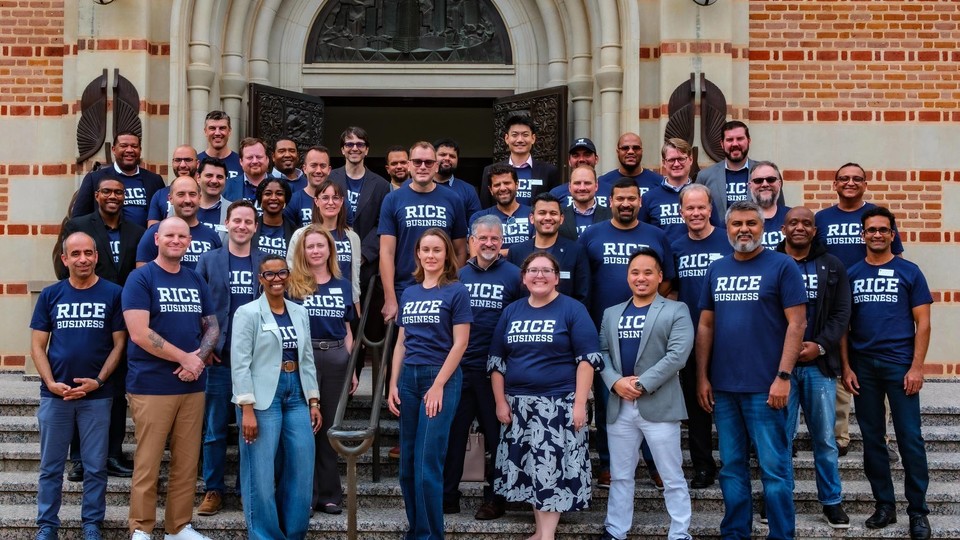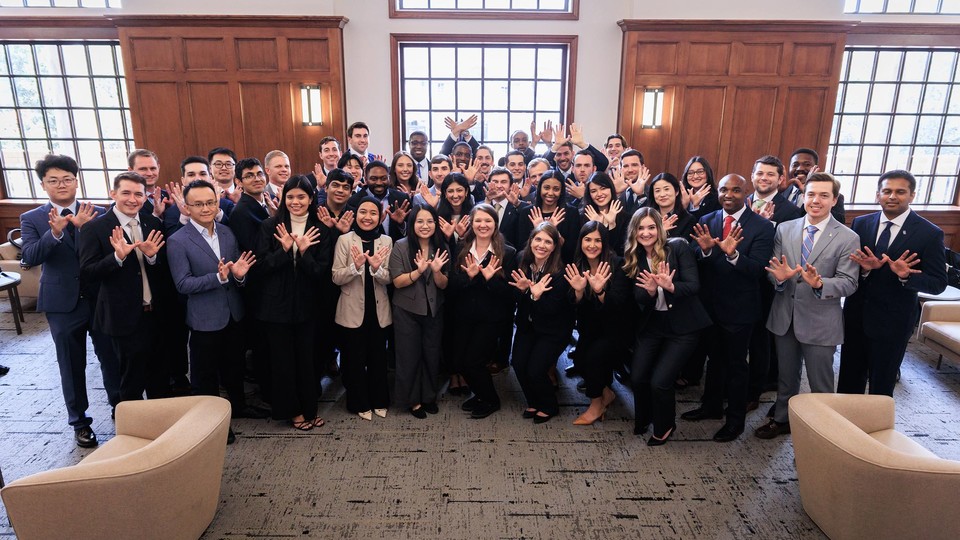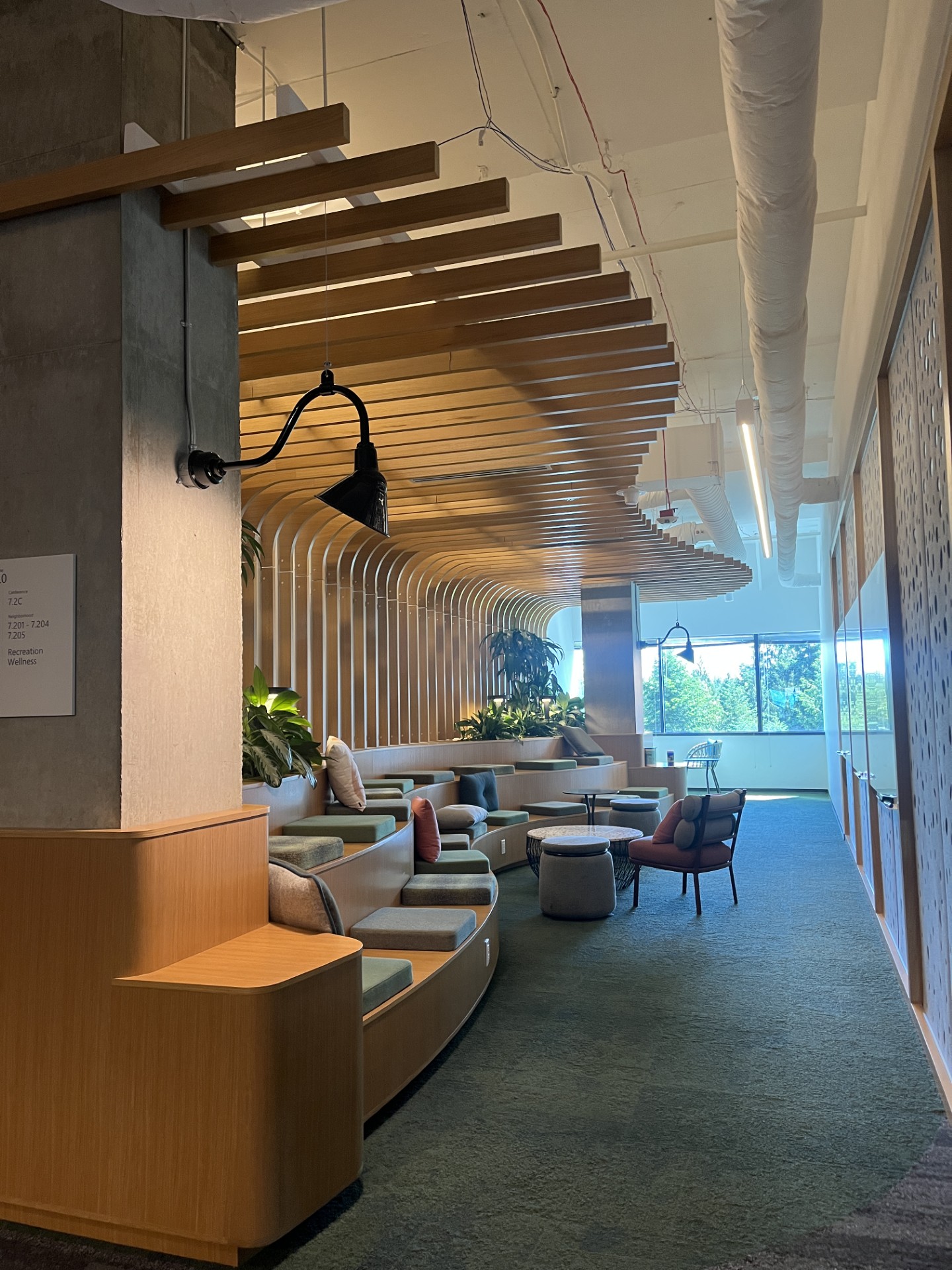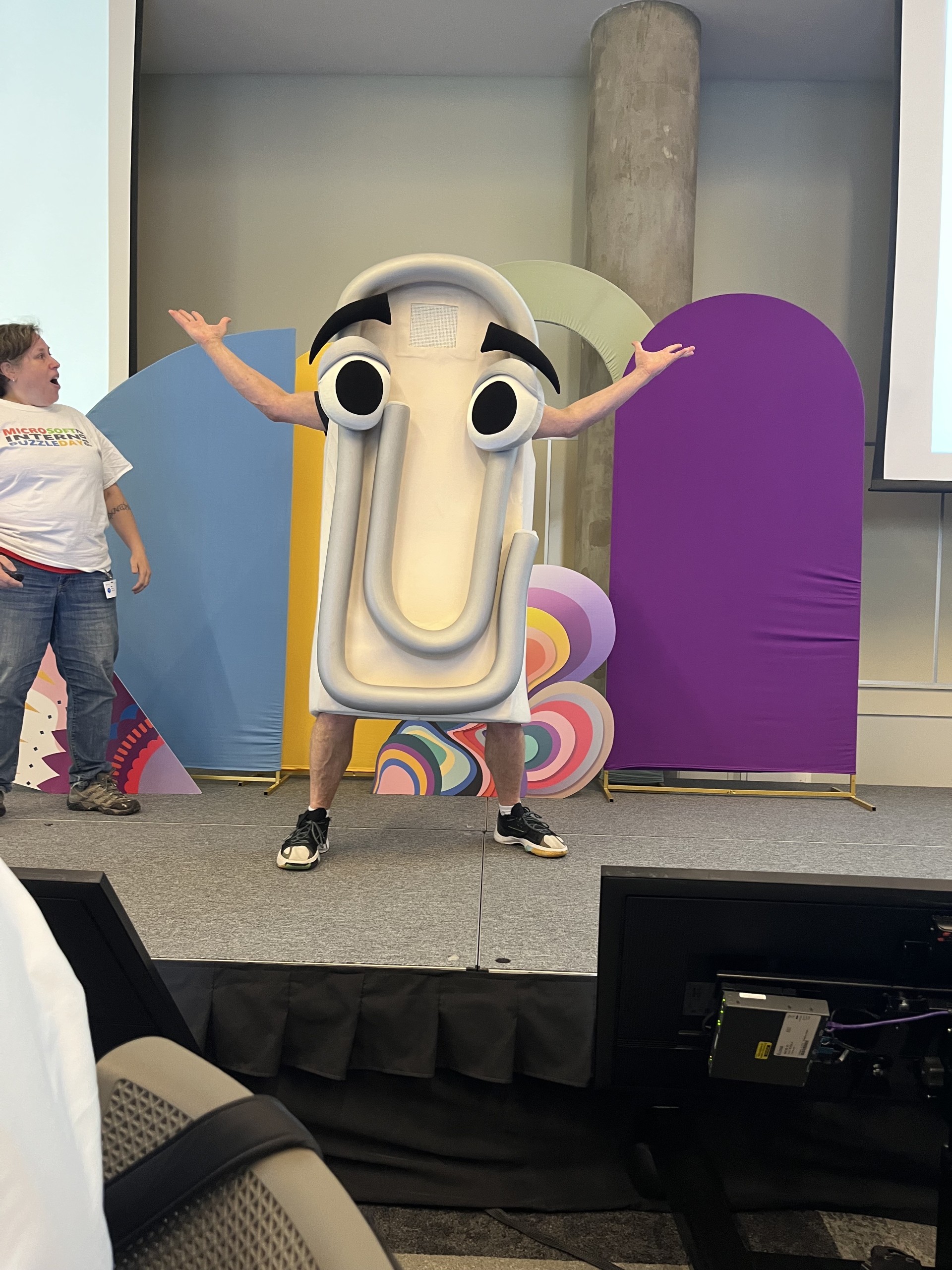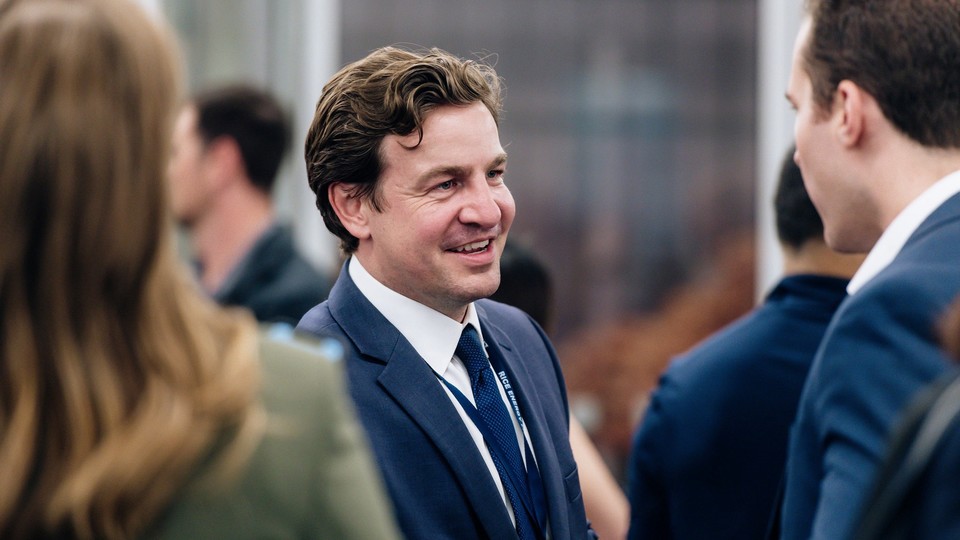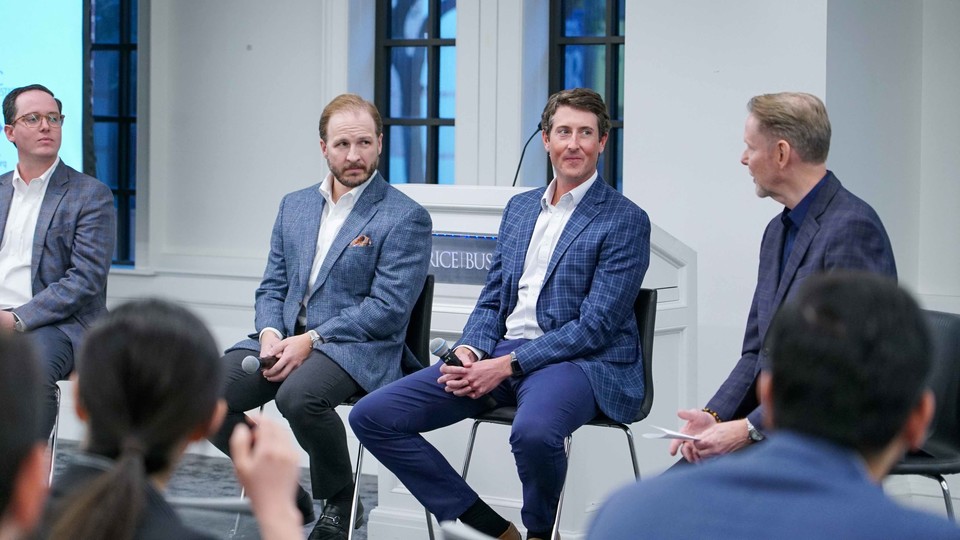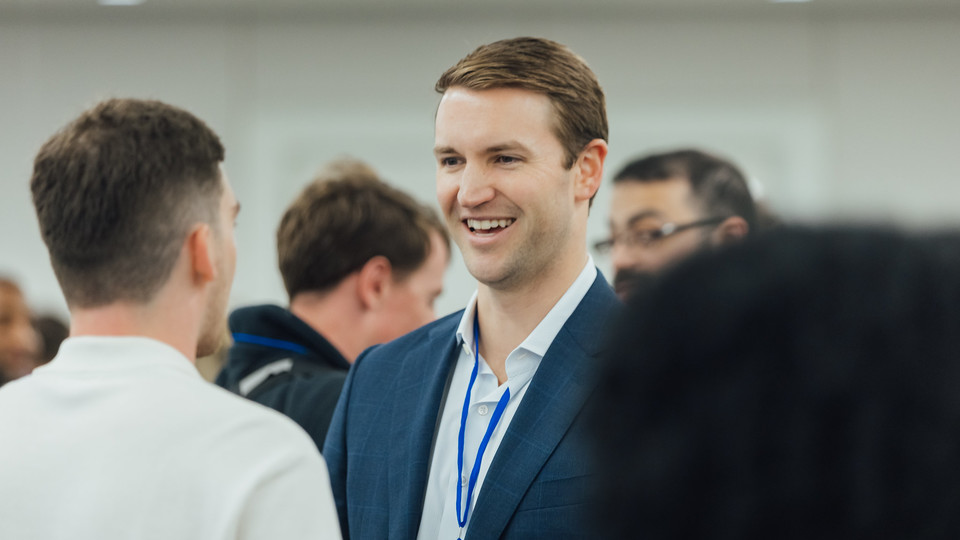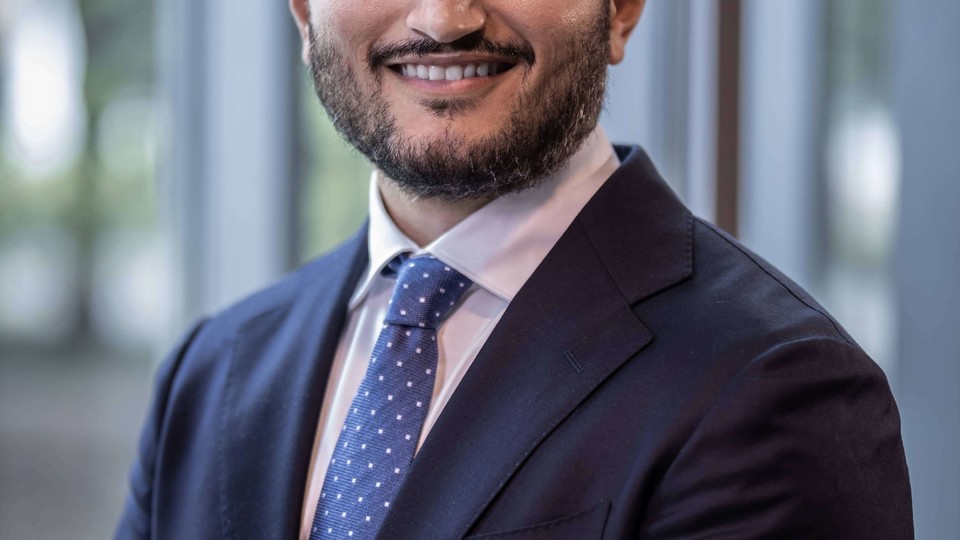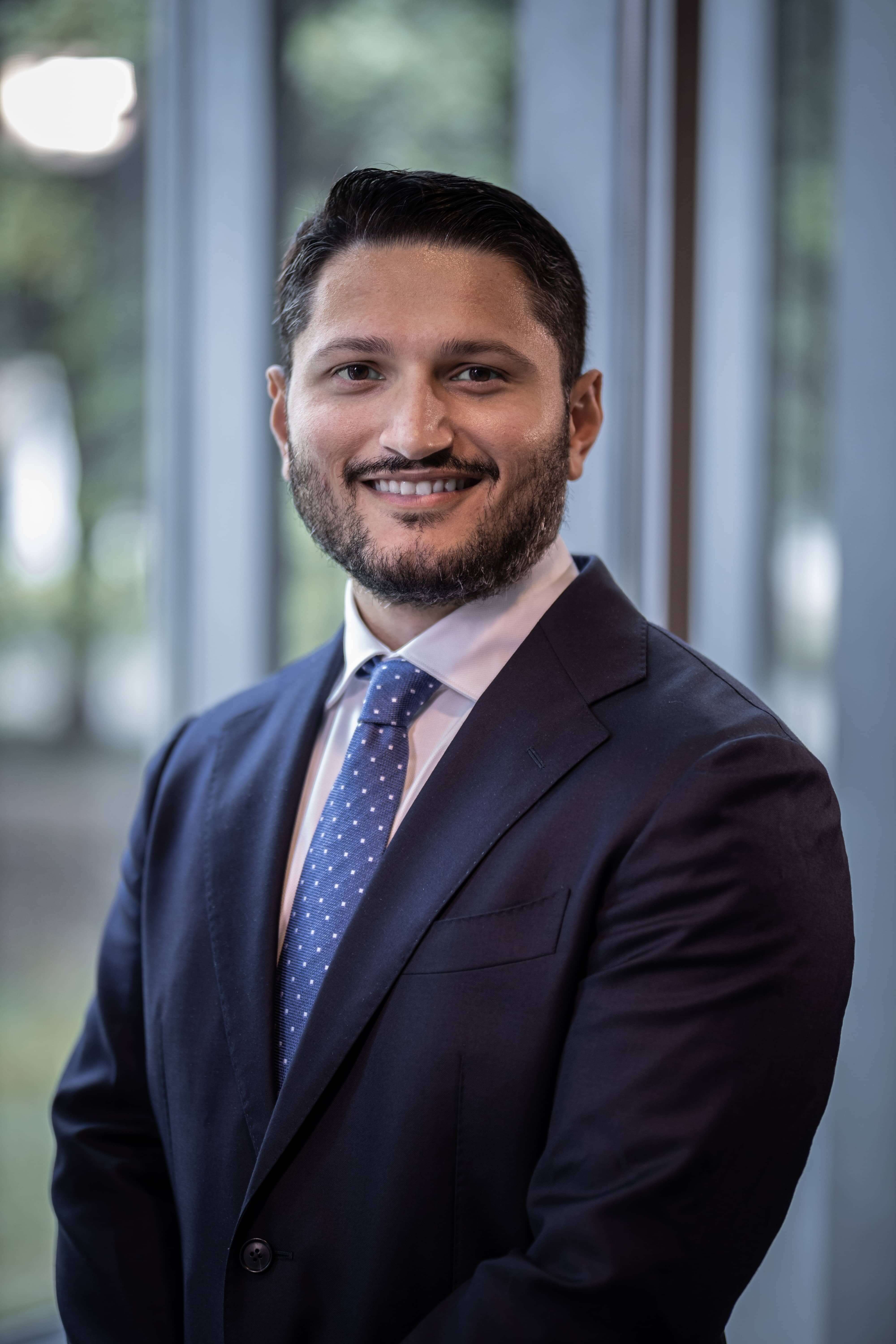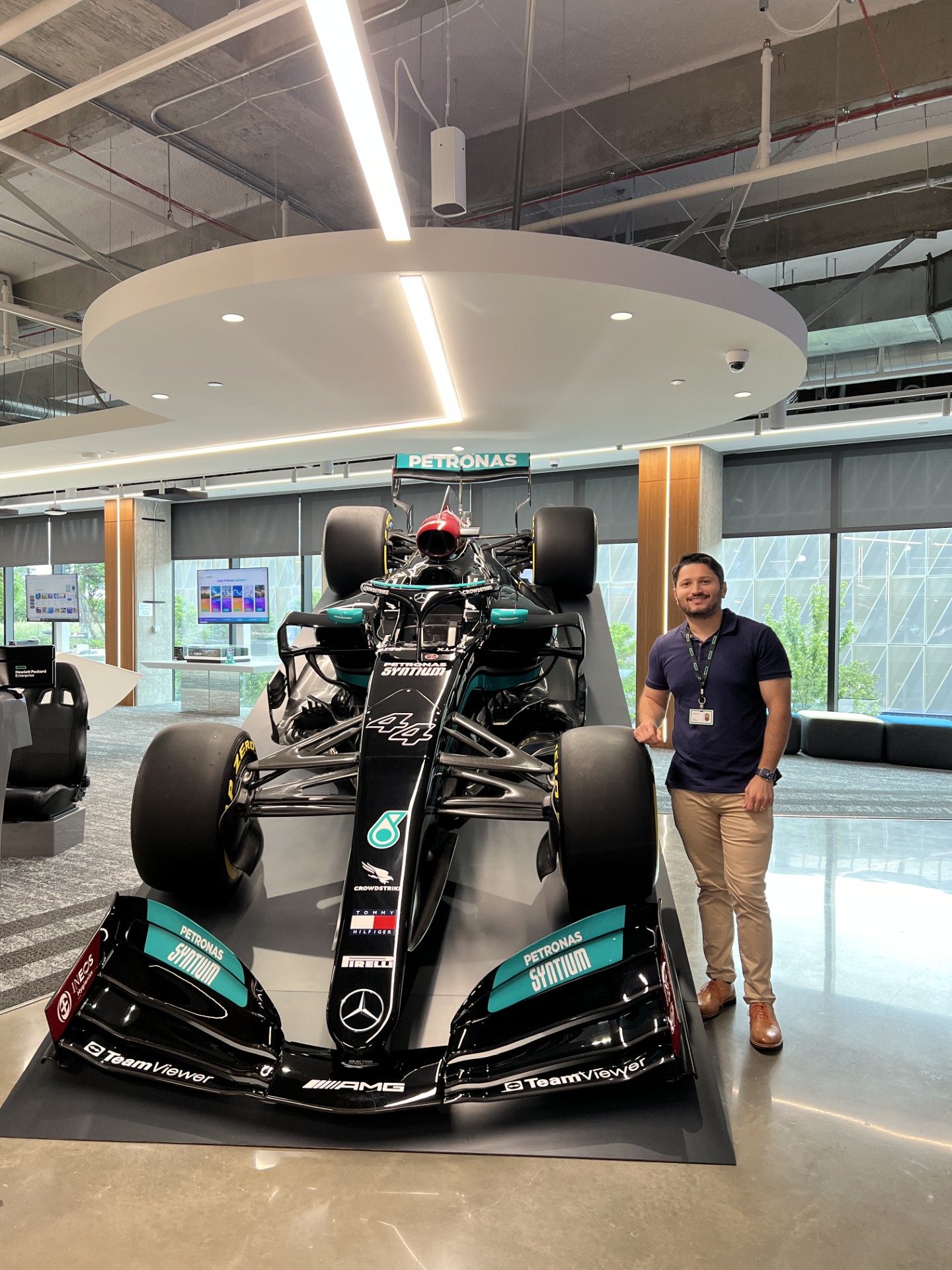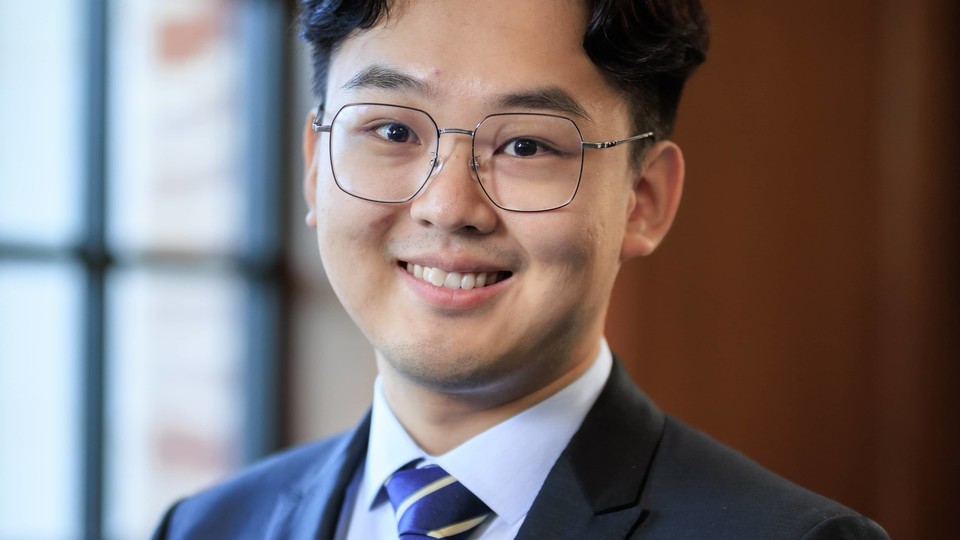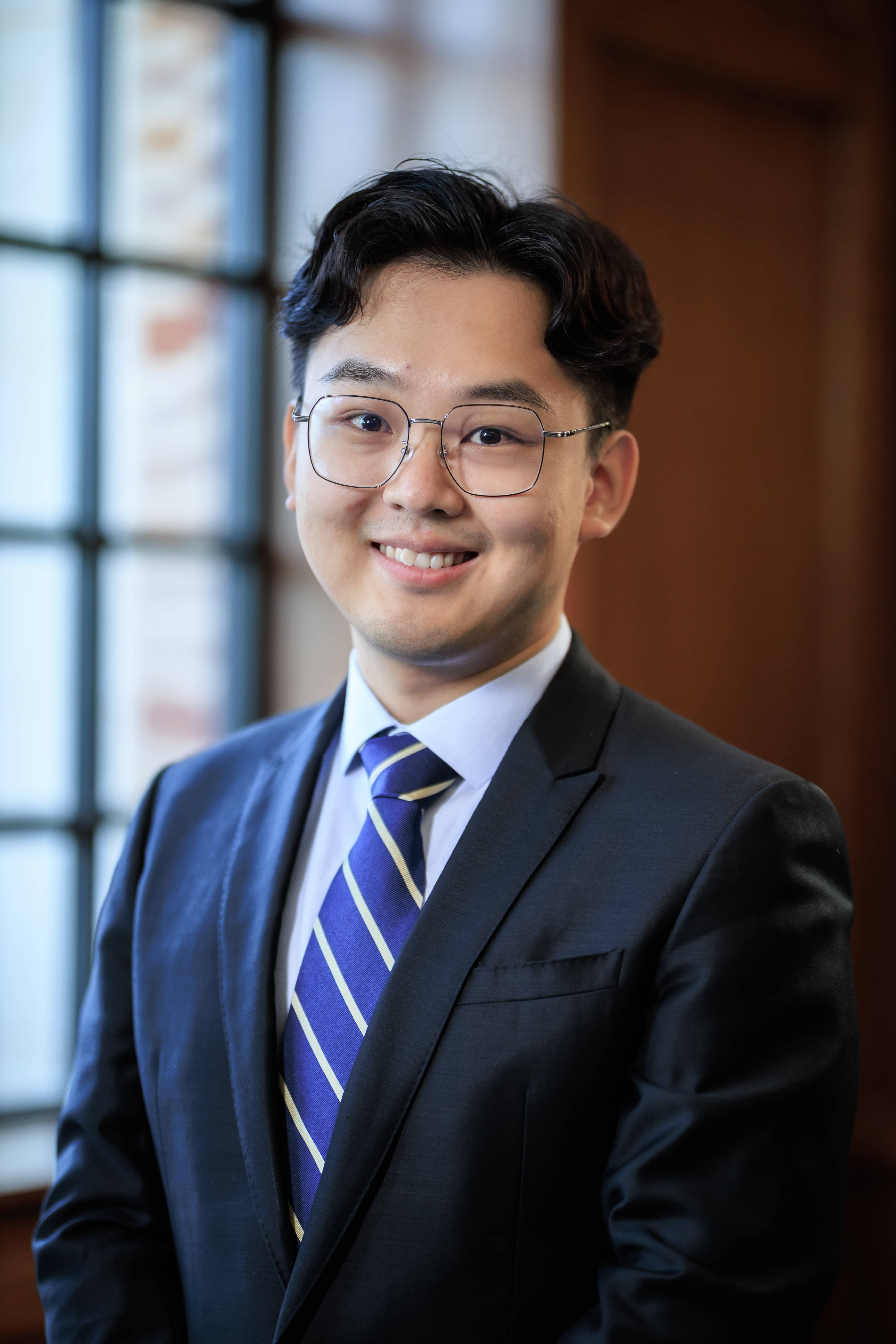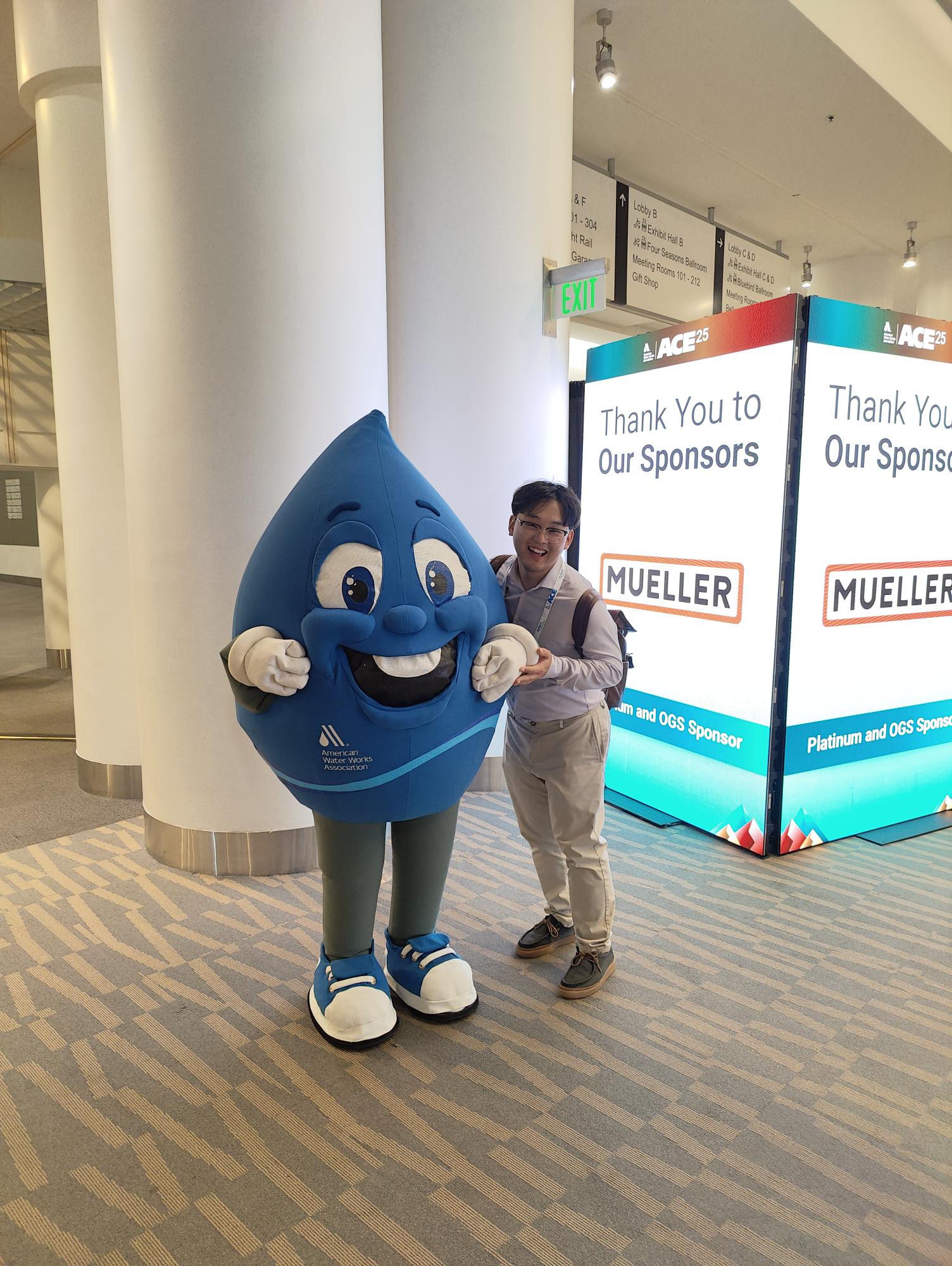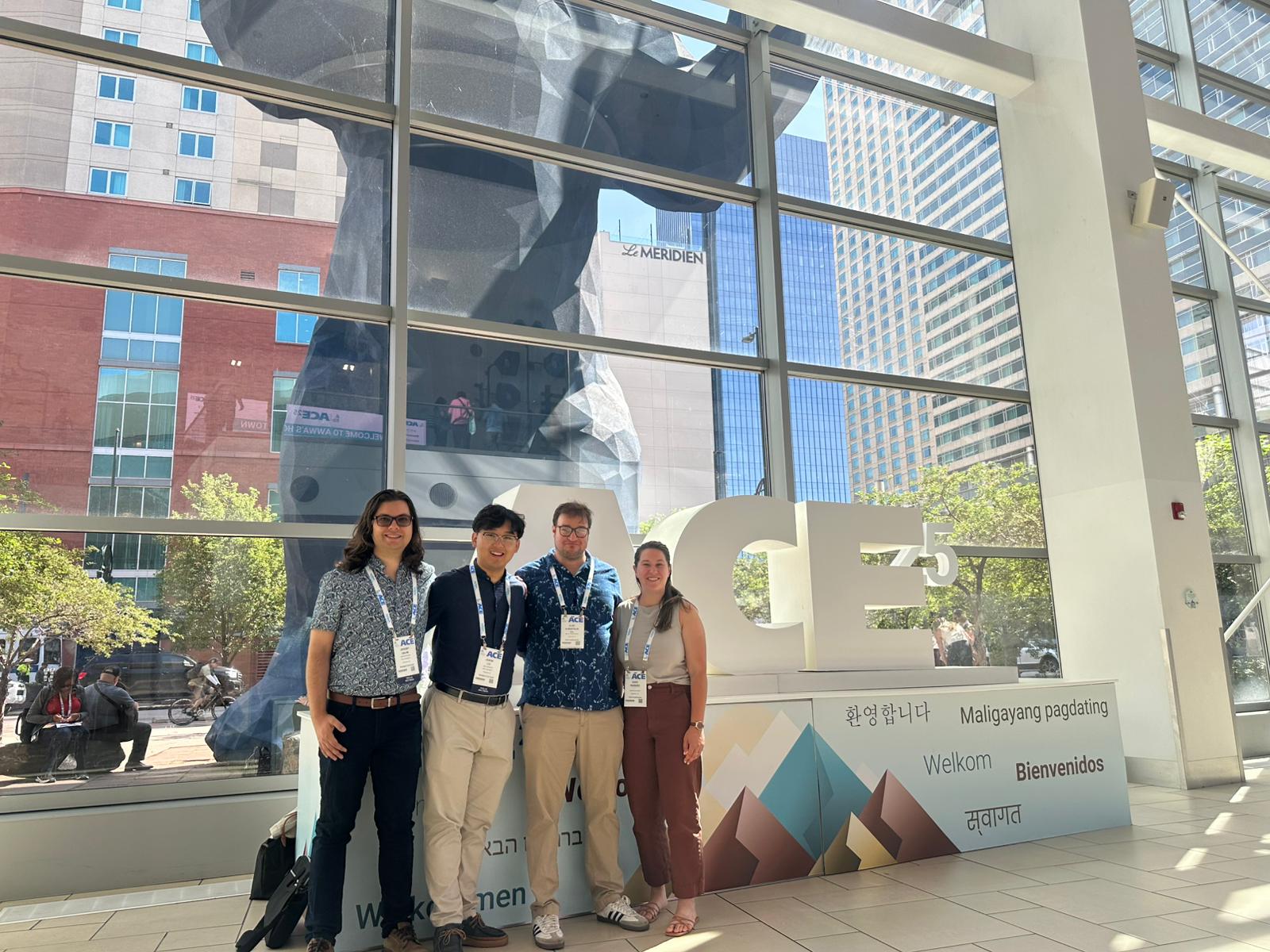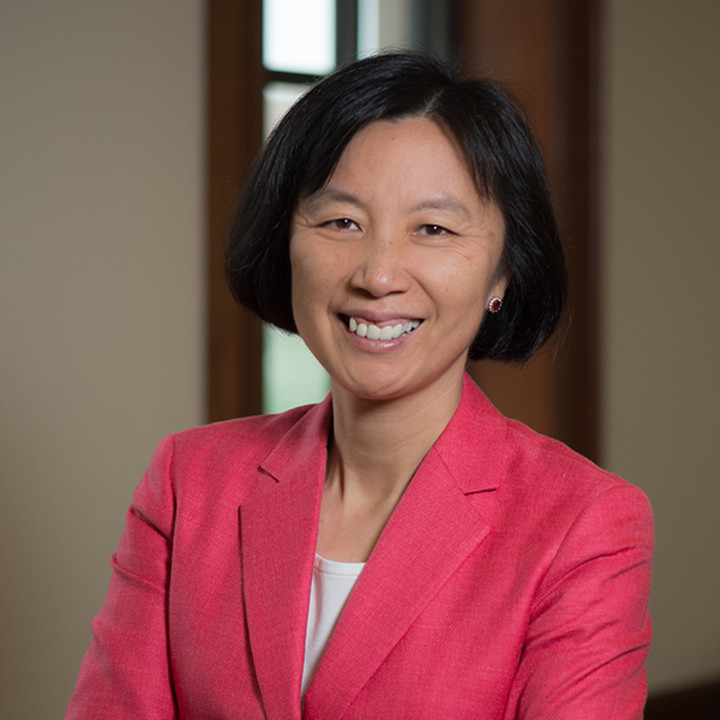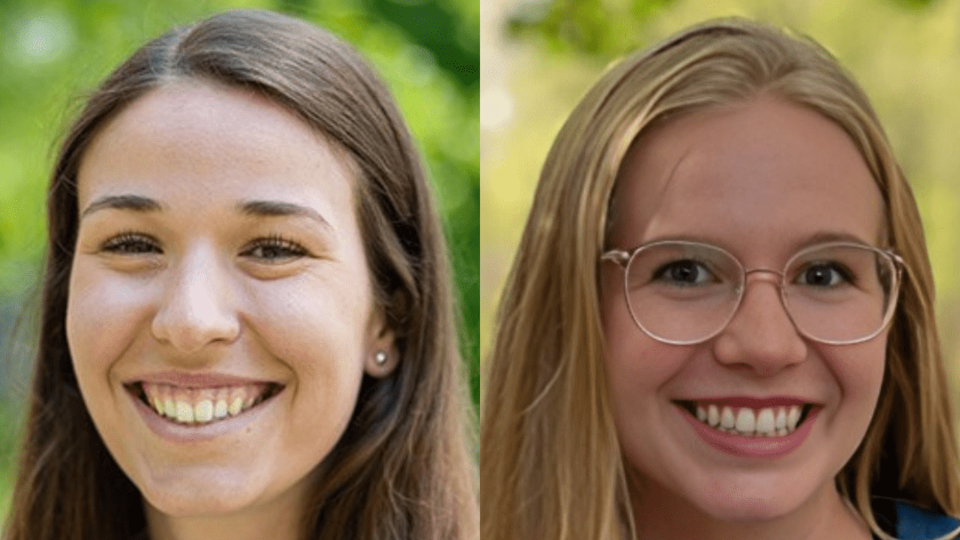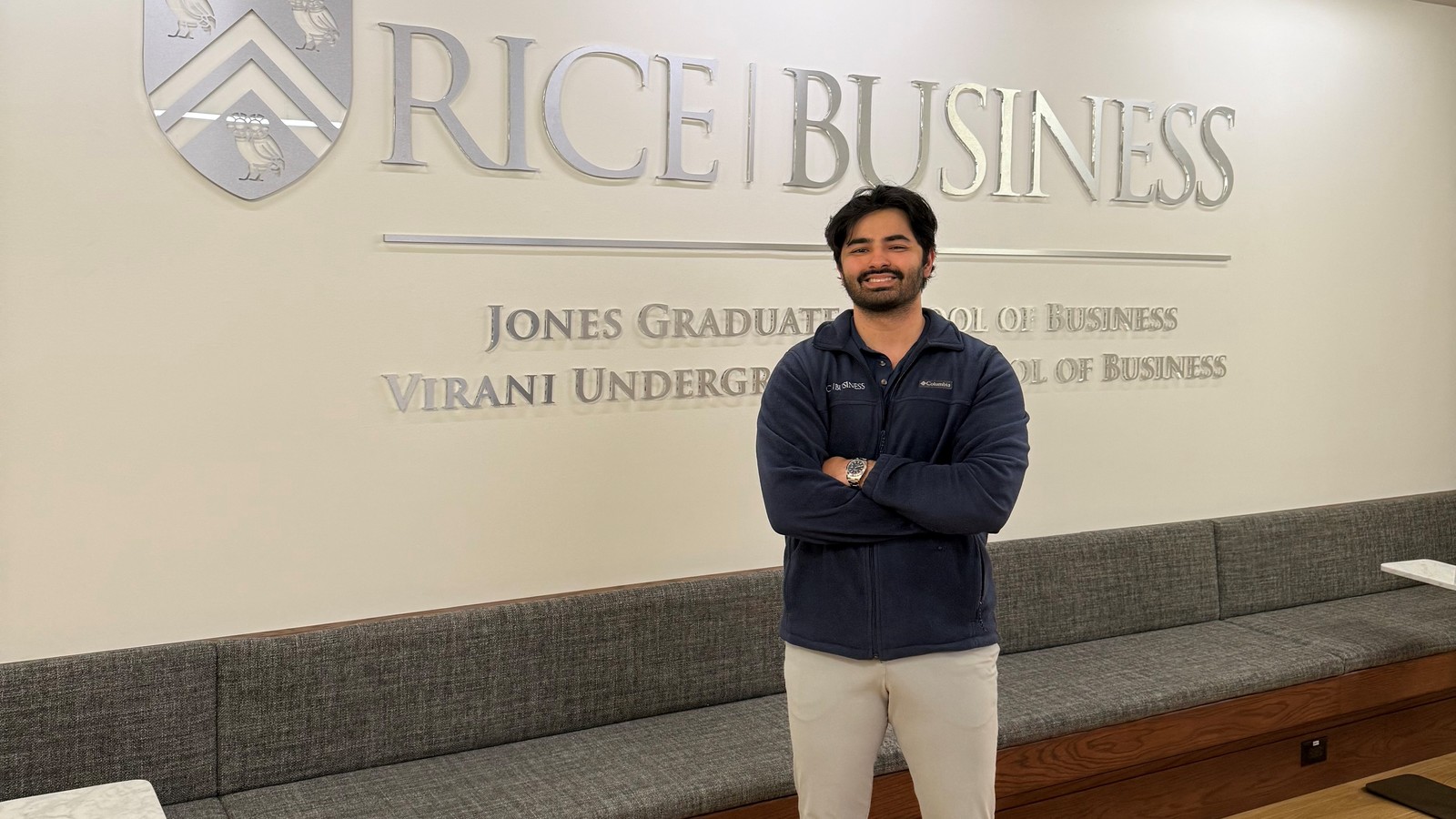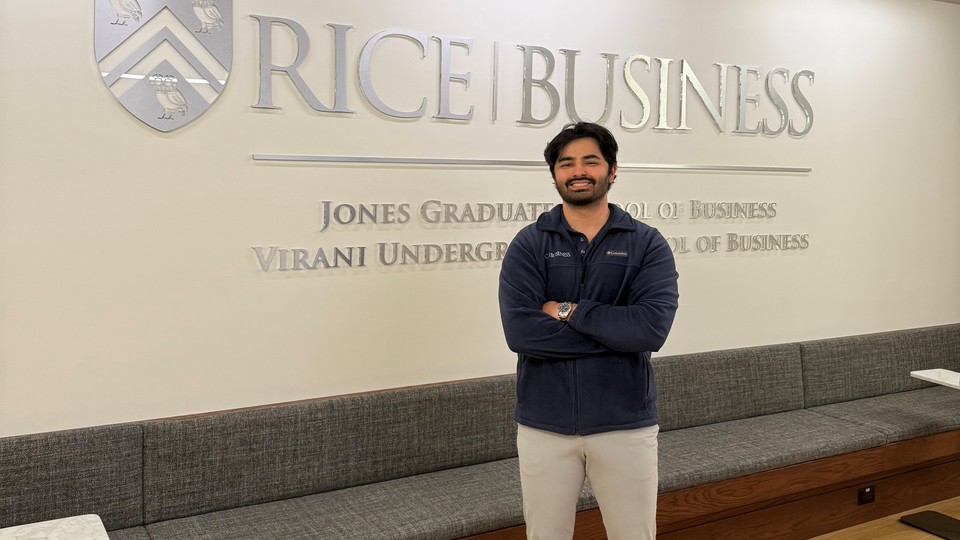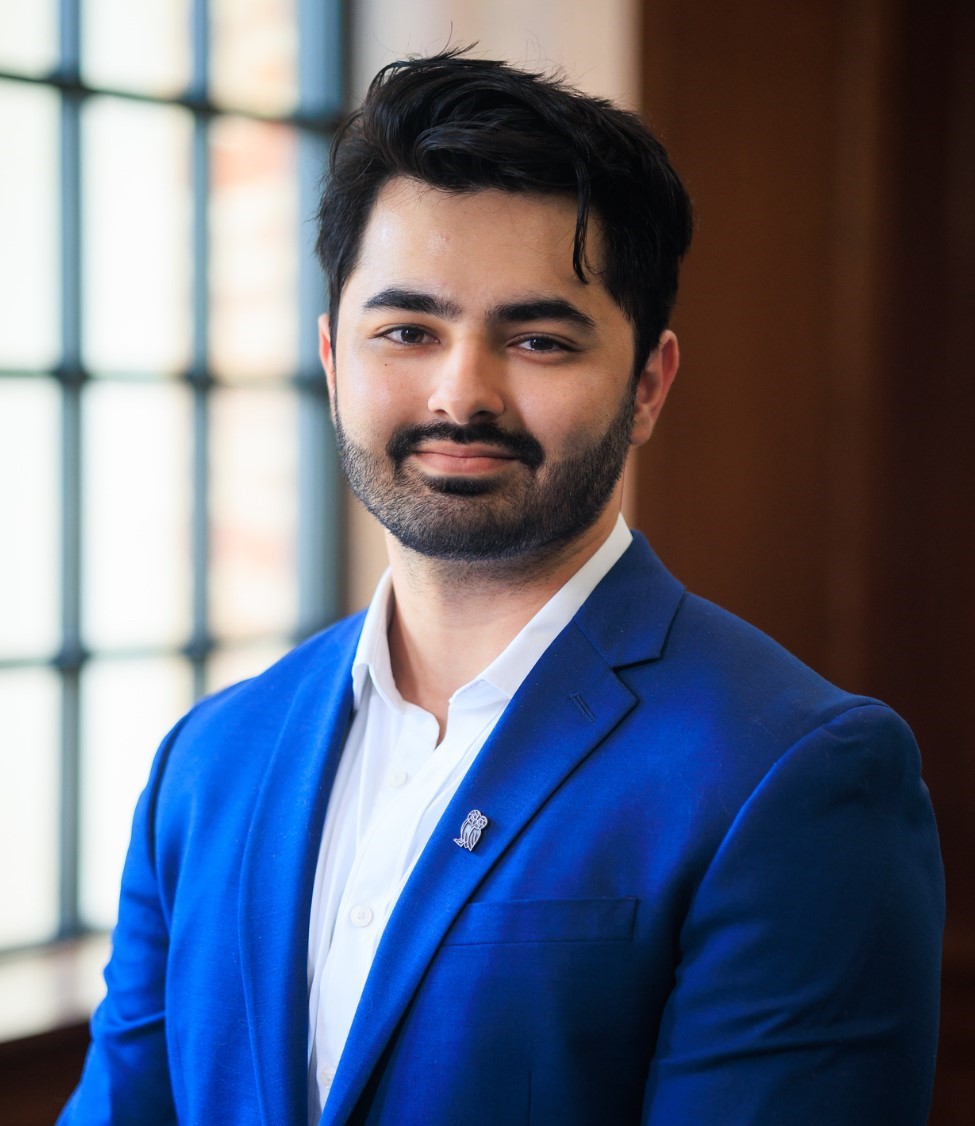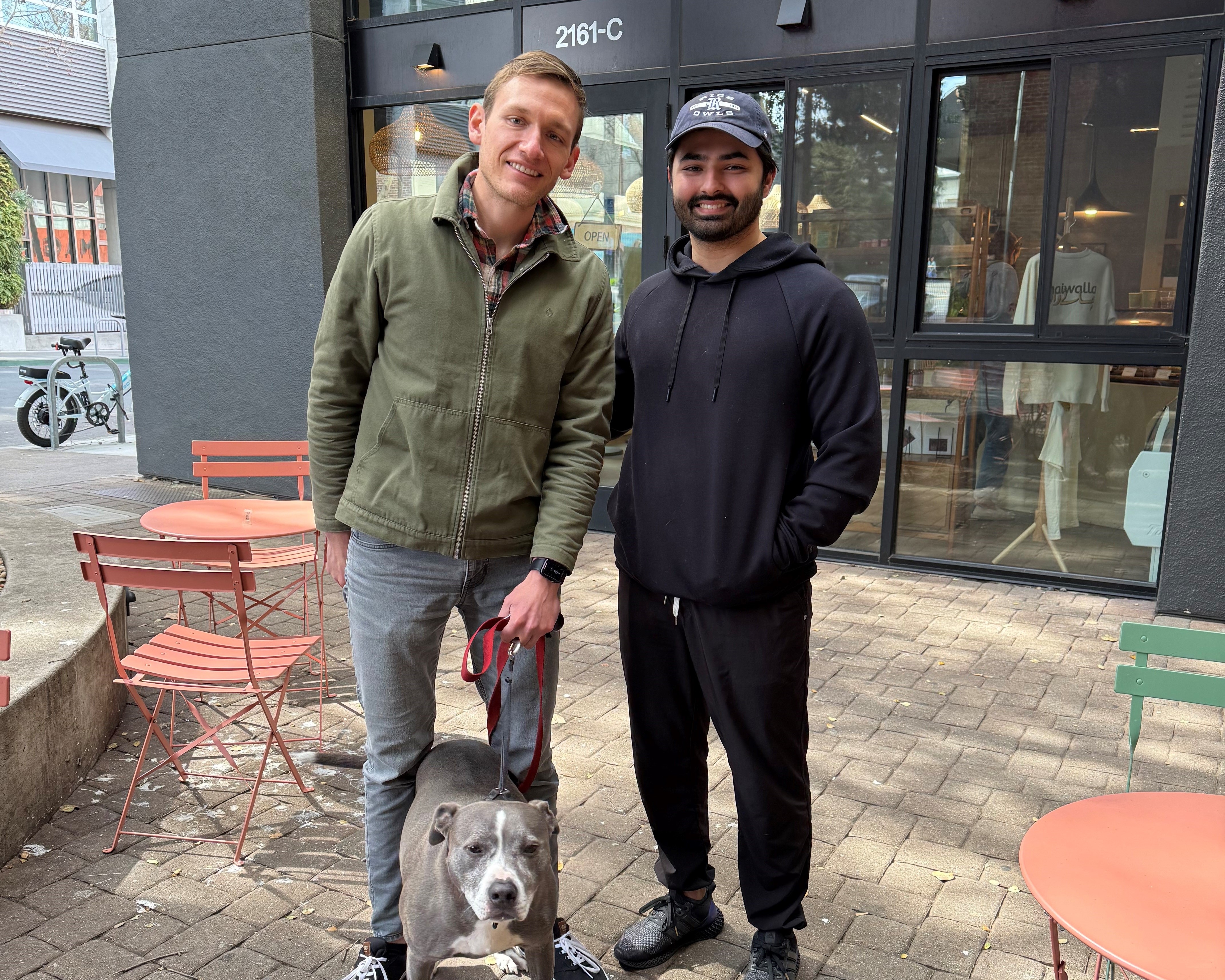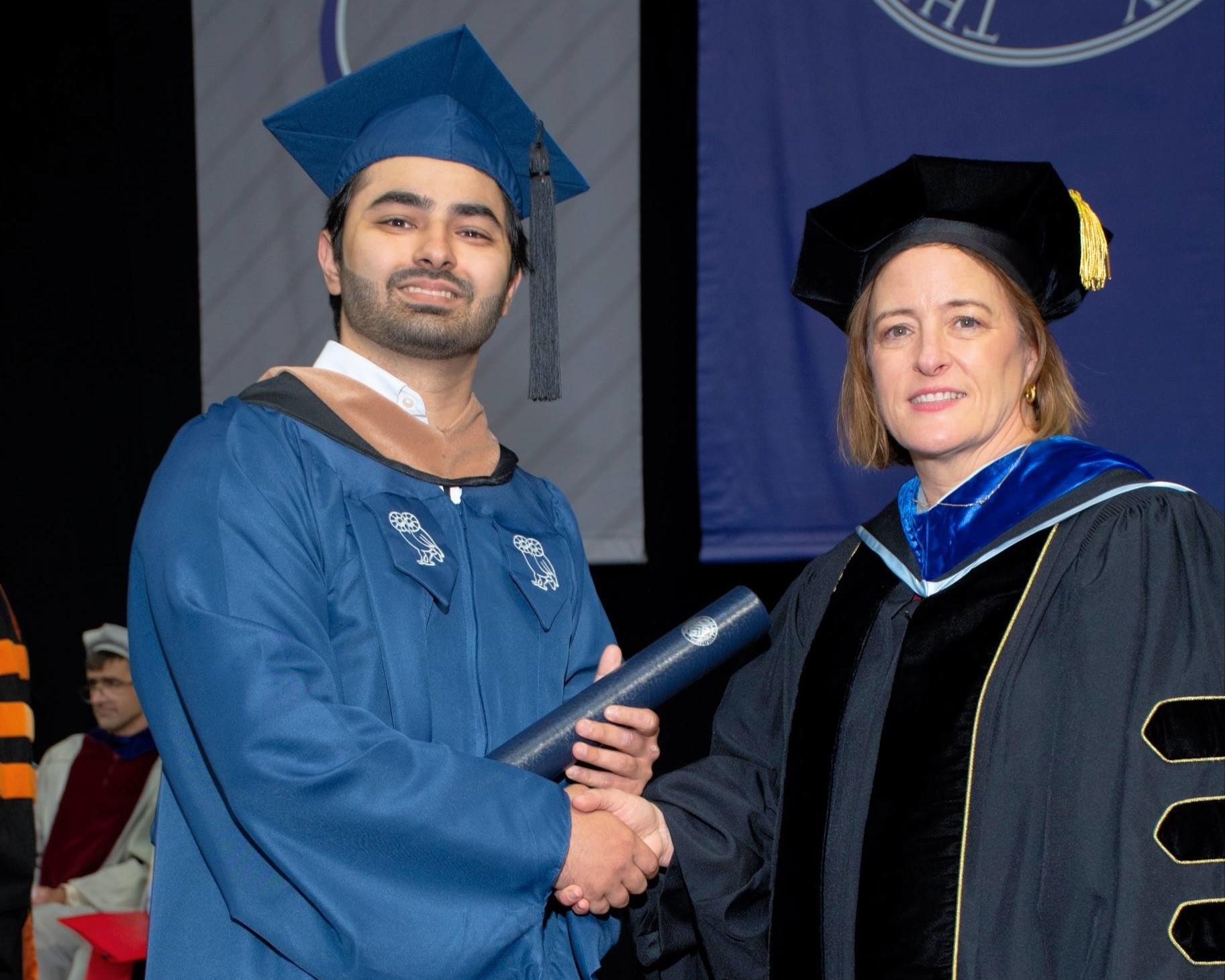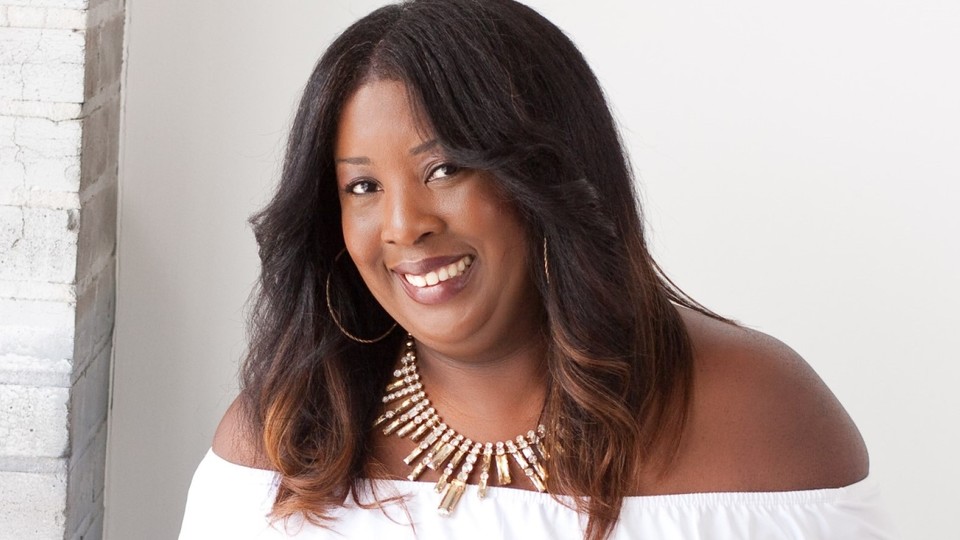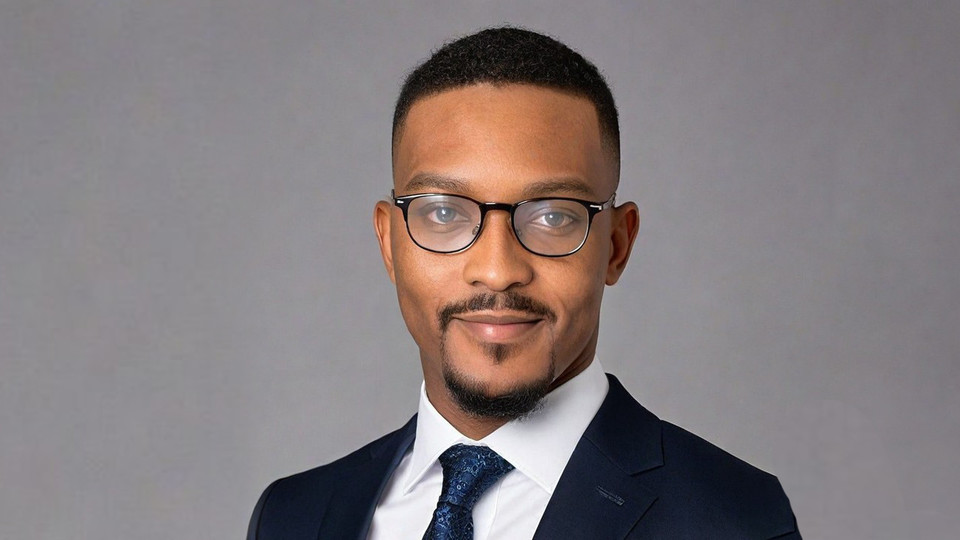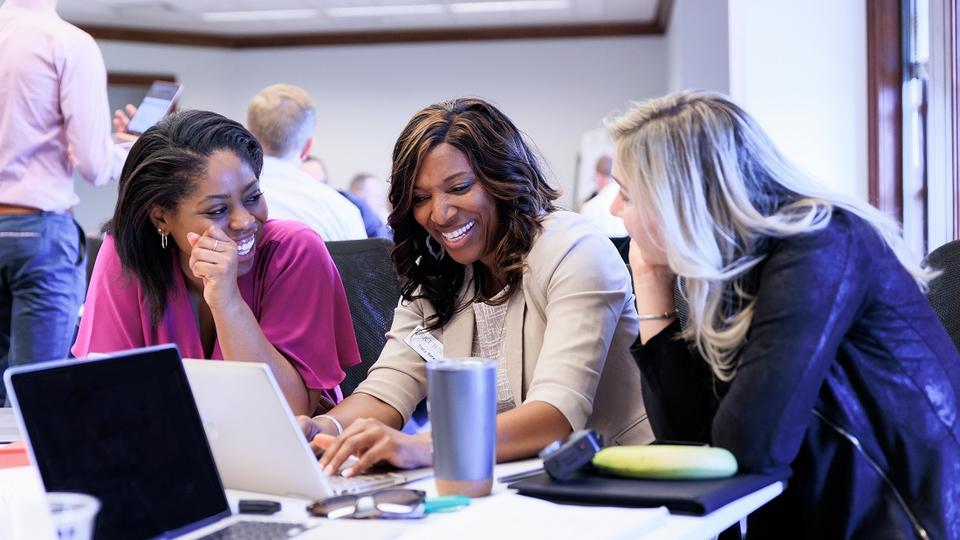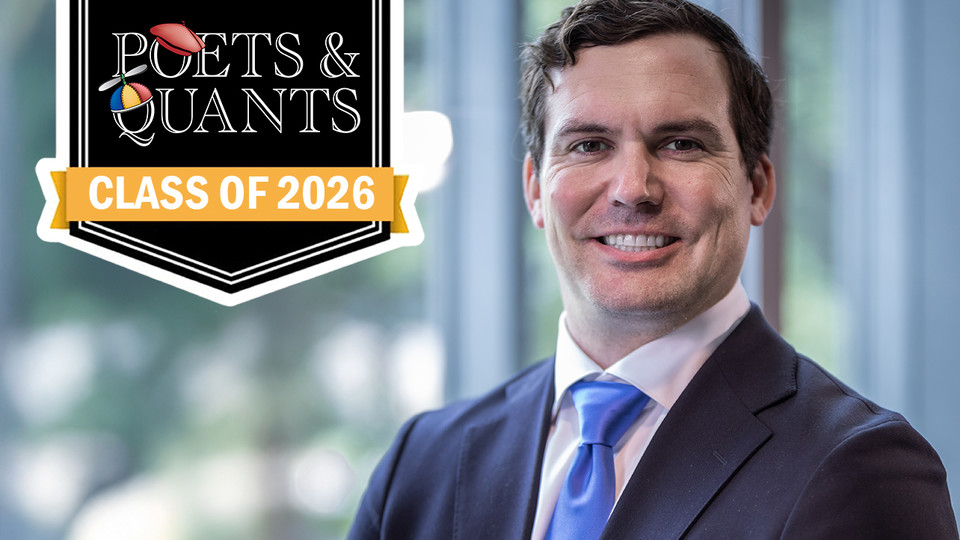[00:00] Maya Pomroy: Welcome to Owl Have You Know, a podcast from Rice Business. This episode is part of our Flight Path series, where guests share their career journeys, the stories of the Rice connections that got them where they are.
On this episode of Owl Have You Know, we talked to the grand prize winners of the 2025 Rice Business Plan Competition, Charlie Childs and Madeline Eiken, founders of Intero Biosystems. Their groundbreaking medical innovation is the first stem-cell-derived lab-grown version of the human intestine, recreating stem cells mimicking human organs, with the potential of eliminating a trial-and-error method in humans. And it all happened by chance.
Listen to their exciting story about their passion for innovation, bioengineering, and how their Rice Business experience has been integral in elevating their venture to the next level.
Today, we have two very special guests, the winners of the Rice Business Plan Competition in 2025, the 25th year of the competition at Rice Business, which is one of the largest and richest competitions that... I mean, we will pat ourselves on the back. Rice is pretty awesome.
And the competition is something that draws people from all over the country, the brightest minds, the most interesting entrepreneurs. And you guys won. And we are so thrilled to have you join us today to tell us about your story and about the phenomenal startup that you have. So, thank you for being here.
[01:40] Charlie Childs: Thank you for having us. This is so exciting.
[01:42] Madeline Eiken: Thanks for having us.
[01:45] Maya Pomroy: So, Madeline and Charlie, so you are the co-founders of Intero Biosystems, which I was reading about this and, just, my mind was, sort of, blown. So, Intero Biosystems has created the first stem-cell derived lab-grown version of the human intestine, wow, with functioning neurons, blood vessels, muscles, and the inner lining of the intestine. I mean, I don't even know how to begin. So, I'm going to let you take over and explain to us, first of all, how you both met and what was really the driving force of creating something that is literally going to change millions of lives.
[01:30] Charlie Childs: Wow, you crushed it. I mean, what the driving force is, is we're total nerds, but that's okay. So, we were both Ph.D. students at the University of Michigan. we are in the lab of Jason Spence. He, like, originally invented this entire field where you can take adult cells, like, blood or any other living cell in the human body, and turn it back into a state where it can turn into any cell in your body. So, that's, like, our stem cells.
So, he figured out how to take the stem cells into these miniature human intestines. And I spent my thesis work optimizing the way that we do that alongside Madeline, who's a biomedical engineer. And both of us get along great. We are good friends. And we both really wanted to push this really fast and make a big impact with the technology because we agree, we think it's super cool and can be super transformative for the field of medicine. So, that's how we spun it out.
[03:20] Maya Pomroy: So, you met in the lab. And tell me about your passion for this kind of research?
[03:25] Madeline Eiken: So, I mean, the first thing that comes to mind is, of course, that it's just so cool. Charlie and I talk all the time about how this is the coolest science we'll probably get to do in our careers. It's just the excitement of being able to take a single population of cells and turn it into this extremely complex mini organ is just, like, really exciting for both of us, and I think for everyone in our lab. And then to commercialize it, I think Charlie and I just have this shared goal of really doing research that impacts the world.
I worked at a startup prior to my Ph.D. and absolutely loved the experience. And going into my Ph.D., my goal was to one day work at a startup again. So, it's happening much faster than I ever expected. But yeah, we, like, just know that we work really well together. We know that we have really complementary skill sets. So, my background is in engineering while Charlie is a biologist. And so, the way that we approach problems is quite different from each other, but we have this, like, really shared interest in commercializing that technology.
[04:23] Maya Pomroy: Talk me through the process. I mean, obviously, it's stem cells. And I think that most of us understand what those are, right? But walk me through how you start with stem cells and you literally grow an intestine.
[04:40] Charlie Childs: Sure. We also think it's amazing. And I think, every day, like, as we develop this model, we are just more and more amazed how amazing, like, nature is and how smart science is. So, what we can do is we take these stem cells, which, like you said, can turn into anything in the body, and then we simulate human development. We literally call it Gatorade. Like, the cells live in this red liquid. And it truly is Gatorade.
It has, like, glucose and proteins and other things that the cells need to live just like our bodies do. And each day, we give them different proteins that leads them down human developmental time until they turn into the miniature intestines. So, it's actually a lot more simple than you would think. And our breakthrough figured out that a single protein that we switched in this process caused this beautiful thing to form. So, the cells, we joke about this every day, like, the cells just know what to do and we just need to, like, push them in the right direction and they will figure out what to do.
[05:34] Maya Pomroy: So, you grew this gut, this intestine, which is then going to be used to test medications and pharmaceutical drugs to see what works and what doesn't work, so you don't have to use humans, basically, as, you know, your control group.
[05:53] Charlie Childs: Mm-hmm. Exactly.
[05:54] Maya Pomroy: You can use these stem cells that function the same as a human intestine and eliminate the whole trial and error of using medicines, of... you know, because, personally, like, I've got gastrointestinal issues. That's why this was so fascinating to me. I've been on a bazillion different medications. And none of them really particularly work. Some work better than others, but this is really life changing for people that struggle with this every single day.
[06:25] Charlie Childs: Right. And you're the exact case example of what we're really aiming for. Like, it's horrible to have to go down this list of medications that the insurance company is going to make you do and just be like, "No, that didn't work. Six months of my life wasted. No, that one didn't work. Eight months of my life wasted."
So, our ultimate goal is exactly what you're talking about, like, this personalized medicine approach where we could make 1,000 organoids from you and be, like, "Hey, the first five drugs are not going to work. Do not waste her time with this. Let's go to the sixth drug that we know will have an impact and hopefully make patients' lives a little bit more bearable during this very uncomfortable process to begin with." But yeah, you nailed it on the head. That's, like, our goal. We really want to get there.
[07:03] Maya Pomroy: So, Madeline, I want to ask you, when you discovered that you have created something really unique and, you know, groundbreaking, tell me about that day, that moment, when you were like, "Oh, my goodness. Like, this is big."
[07:21] Charlie Childs: No, it's crazy.
[07:21] Madeline Eiken: Yeah. So, Charlie had done, like, all this really amazing work in her Ph.D. to develop this organoid model, but one of the big drawbacks of organoids is that they have to be encased in, like, basically, jello. It provides some support. As they grow and get bigger, they need some structural support, but the jello that we use in the lab is made from mouse cancer cells. And so, we just have this, like, really not relevant supporting matrix surrounding.
[07:49] Maya Pomroy: Wait, mouse cancer cells?
[07:51] Charlie Childs: Yep.
[07:52] Madeline Eiken: Yeah. Like, the mouse cancer cells spit out a juice that's like jello.
[07:57] Maya Pomroy: Okay.
[07:57] Madeline Eiken: And then we put the organs in it.
[07:58] Charlie Childs: It's gross.
[07:58] Maya Pomroy: What? No. I mean, it sounds amazing. I had never heard of that before.
[08:06] Madeline Eiken: You don't really encounter it in your day-to-day life, but...
[08:09] Maya Pomroy: Not in mine. Not in mine, no.
[08:12] Charlie Childs: Madeline's entire Ph.D. is on how we need to move away from... It's called Matrigel. It's very important for the whole field. Everybody uses it, but we have, like, whole Ph.D.s dedicated, like Madeline's, to how we can move away from it. So, I'll be quiet and let you keep going, Madeline.
[08:27] Madeline Eiken: Yes. So, anyway, Charlie and I were working together. We had this really awesome organoid model that we think could be really powerful, but we know we cannot be using mouse cancer juice to grow it. And so, we're working on some ways that we can grow the organoids without it.
So, we're, like, doing a bunch of pilot studies trying to see what we think might work. And then we had a plate that we accidentally forgot in the incubator for a few months. We were still feeding it, but we just didn't have plans for an experiment for it. And so, like, every month or so, we'll go through the incubator, clean everything out, like, figure out what we want to do with all of the plates that we have.
And so, Charlie and I were looking at this plate that was a few months old. And we were like, "These organoids are moving. What is going on?" And the organoid had matured enough that it was actually doing peristalsis, which is the movement of muscle that pushes food through the intestine. And we had observed this in organoids that we had implanted into mice because they get really big and really mature, but we'd never seen it in the dish doing this.
[09:26] Maya Pomroy: On its own, by accident, in the refrigerator.
[09:30] Madeline Eiken: Yeah.
[09:31] Maya Pomroy: But those are usually the way. Like, that's how they discovered penicillin, right? It was an accident.
[09:36] Charlie Childs: Right.
[09:36] Madeline Eiken: Exactly. Yeah, a little bit of an accident. Um, yeah. So, we, like, freaked out. And it was so exciting for us because it really confirmed that these are just as functional as an actual human intestine. And we can see it with our eyes that these really work. And then it also just opened up this whole other line of questioning that we can ask about peristalsis, which is how food moves through your intestine.
And when you have something like diarrhea, it could be that peristalsis is speeding up. When you have constipation, it could be that peristalsis is slowing down. So, it just unlocked all of these additional questions that we can now ask with the organoids to determine things like side effects to drugs. So, that was a really exciting... We were, like, running around, screaming, showing everyone. This is so fun.
[10:14] Charlie Childs: We were screaming, like, jumping up and down.
[10:16] Maya Pomroy: When was this?
[10:18] Charlie Childs: I think this was, like, early December last year. And science is, kind of, the same way that, like, between Thanksgiving and Christmas, you know, you're, like, not a lot going on.
[10:28] Madeline Eiken: Yeah.
[10:28] Charlie Childs: So, we were like, "Oh, my God. Wow, we've been working so hard. This is great." So, it was a good way to end the year.
[10:33] Maya Pomroy: I mean, do you, like, post something like that on Instagram or something?
[10:37] Charlie Childs: [crosstalk 10:41] that.
[10:38] Maya Pomroy: How do you show what you do?
[10:38] Madeline Eiken: I wish.
[10:39] Charlie Childs: I wish. I think one of our undergrads showed their mom, and their mom was very excited, and that's, like, the most that we got, but that's okay.
[10:45] Maya Pomroy: Yeah. So, you made this earth-shattering discovery. And is that when you decided to launch the startup?
[10:54] Charlie Childs: We had decided to launch it earlier in the year, but we were planning on going really slow. Like, it was the month before I defended my thesis. We were going to apply for grants, you know, get, like, a lot of data. We didn't think anyone was going to be super excited about it. I don't know. We didn't know what we were doing.
And then all of a sudden, we got, like, a ton of interest both from customers and investors. And we were both like, "Oh, we got to go. Like, we got to go faster. This is crazy." I feel like, as of two months ago, I'm like, oh, my God, we were in full startup mode. Like, we were just sprinting. And it's really fun. We both love it, but it is not what we anticipated, which is in the best way.
[11:28] Madeline Eiken: Yeah. The further along we get, we’re like…We knew this model was awesome a year ago when we started the company. And the further along we get we're like, "Oh, this model is awesome." And so, we're, like, really, I think, thinking a lot bigger about what we can do with it and, like, how it can help people.
[11:44] Maya Pomroy: And how you can share it, which leads us to the Rice Business Plan Competition.
[11:50] Charlie Childs: Yeah.
[11:51] Maya Pomroy: So, what was really the reason that you decided to compete in the Rice Business Plan Competition? How did you hear about it? What did you know about it? Tell us about that experience.
[12:02] Charlie Childs: All the credit goes to Madeline, like, all of it. She did, like, all the hard work. So, talk about how amazing you are, please.
[12:09] Madeline Eiken: Sure. Yeah. So, when we applied for Rice Business Plan Competition, Charlie was no longer a student. So, as the student representative of the company, I'm really fortunate to be, really, in the supportive ecosystem that the University of Michigan provides. There's a ton of programming for student entrepreneurs. And I'm, like, amazed every day, especially with undergrads starting their own companies.
Like, there's just really, really cool work going on. And so, we had gotten integrated into this community. And then our faculty advisor was in the Zell Lurie Institute for Entrepreneurship. She was like, "You, guys, I think you'll do really well at these student business plan competitions. You should apply for some." So, she takes a team every year and was just, like, really encouraging. And so, it was something that we had been thinking about just for, like, the past six months prior to the business plan competition.
And then we were really excited when it was time to apply, especially because it was dovetailing really nicely with what ended up being our fundraise. And so, we were like, "This is going to be perfect. We have to write a business plan for our fundraise anyway." Like, we're, kind of, already doing all the activities for it. So, yeah, we applied. We had a watch party for when the teams, the 42 teams, were picked for the business plan competition.
[13:18] Maya Pomroy: Yes, because there's only 42 teams.
[13:20] Charlie Childs: Yeah.
[13:20] Maya Pomroy: I mean, Rice really limits it to the best and the brightest. And, you know, there's hundreds of people that apply to this competition. And to be chosen is a really big deal.
[13:30] Madeline Eiken: Oh, my gosh. Yeah. We were so excited. They announced our name second. And we were just screaming. And it was so exciting.
[13:35] Maya Pomroy: As much as when you saw the organoids or... I'm just kidding.
[13:39] Madeline Eiken: It was a different kind of scream.
[13:41] Charlie Childs: I think it was more because we didn't think we were going to... Like, we were like, "Okay." Me and Madeline were, like, five minutes late. It was, kind of, embarrassing. We couldn't find parking. And the business school would, like... It was so bad. And the business school put on, like, a watch party for us. So, we're, like, running up the stairs. And we were like, "Oh, if we don’t get picked, there's 42 teams, like, it will be okay." They announced us second. And we had walked in the door, like, the second before they announced us. So, it was very exciting.
[14:05] Maya Pomroy: Wow.
[14:05] Charlie Childs: It was very fun.
[14:06] Madeline Eiken: Yeah. It was very exciting.
[14:07] Maya Pomroy: Well, I mean, it's a very, very, very rigorous process to be selected for the Rice Business Plan Competition by the Rice Alliance for Technology and Entrepreneurship here at Rice. I mean, they really hand select these teams. And then you were called second. So, tell me how did you plan for it and that whole experience of, so you got in, with 41 others, teams from all across the country, you know, the Ivys, all these phenomenal schools. So, then what?
[14:36] Madeline Eiken: We ended up having, like, a pitch gauntlet leading up to Rice, which I actually really prepared as well. So, we pitched at South by Southwest. And then the next weekend-
[14:45] Maya Pomroy: In Austin.
[14:46] Madeline Eiken: ... we pitched... Yeah. And that was so fun. Charlie's from Austin. We had a great time. And then we pitched at the Baylor University Pitch Competition. Then the next weekend, we pitched at the University of Arkansas Pitch Competition. So, we had a lot of time to really hone our pitch and figure out how we wanted to tell this story.
Charlie and I are both scientists. We're used to telling and talking about the organoids to a very scientific audience. And so, it was really important to us that everybody could understand what we were doing and how we were thinking about the business not just from a scientific perspective. So, we were really lucky to have Dawn, who, at the time, was an MBA student, he's now graduated, at the Michigan Ross School of Business. And so, he was also really helpful in just, kind of, thinking about how we wanted to tell the story to a broad audience while also getting across scientifically how cool the science is. Yeah. So, it was, like, a lot of really lucky, well-timed practice as well as getting a lot of feedback from different people to make sure that the science was really understandable as we went into the pitch.
[15:48] Maya Pomroy: So, tell me your pitch. I want to hear the pitch. What's the pitch? Tell me the story.
[15:54] Charlie Childs: The pitch is that, clinical trials, we all think, are this way to get, like, a miracle drug, but in reality, 90% of drugs that go into clinical trials fail. So, our pitch to the world, so if any pharma companies are listening, come talk to us, is to fail your drugs fast before you go into clinical trials. It takes $2 billion to get a drug to market. Don't waste all that money. Fail it before you go in using our model or maybe we discover your blockbuster drug, and you can then funnel all your resources into that going into clinical trials.
[16:26] Maya Pomroy: Fail fast.
[16:28] Charlie Childs: Fail fast. Exactly.
[16:28] Maya Pomroy: I love it. Fail fast so that you don't waste any time-
[16:33] Charlie Childs: Exactly.
[16:33] Maya Pomroy: ... because time is really of the essence. So, when you arrived at Rice, what were some of the other entrepreneurs pitching? What were some of the ones that stood out to you?
[16:43] Charlie Childs: Oh, my gosh. They were all so cool. Okay. I'm going to say my favorite. And then Madeline, you should tell your favorite. And it might be the same as mine. They were all so cool. It's hard to pick, but we are obsessed with Farmsmart.ai. We saw them at Baylor New Ventures competition. They're out of LSU.
And it's four really, really bright guys who are making this AI for, I'm going to butcher this, but I hope they forgive me, for agricultural use. So, you say, like, what problems you're having with your crop, and the AI will prompt you with ways to fix it or, like, troubleshooting or ask you more questions so you can help your crop or troubleshoot from there. But that was my favorite. It's such a cool idea. Oh, my gosh. I'm obsessed.
[17:23] Maya Pomroy: And Madeline, what about you?
[17:25] Madeline Eiken: Oh, my gosh. I do love Farmsmarter.ai. They're great. I think, like, generally, what's so cool is that we are so excited to talk about our startup. Obviously, we think it's so cool, but then it's so fun talking to all of these other student entrepreneurs that are thinking about really, really big problems that, like, I never think about. I don't think about what a farmer has to do in order to, you know, address issues of their crops while still following regulations.
And so, I think it's just so cool to, like, learn about all of the different ways that entrepreneurs are tackling really big problems with a really cool solution. So, I think, in general, what's so fun about going to these competitions is just meeting people who are just as passionate about us about something totally different. And that was really, really fun.
[18:08] Maya Pomroy: How does the Rice Business Plan Competition stand out in comparison to some others?
[18:12] Charlie Childs: It was, like, a whole other beast. And people kept warning us, like, leading up to it. They were like, "This is fun, but wait until you get to Rice." It was just, like, the breadth of not only the startups, but also the judges and all the people from Rice. The investors, like, we were just blown away at how much support and interest there was.
And I mean, our first pitch was crazy. Like, people were audibly, like, gasping and cheering. And it was just such a fun group to pitch to. And we just made so many wonderful connections. And I truly, truly, like, this is, like, launching us into another realm that we didn't even think we were going to be able to be in both from, like, connections and investors and just support. We're so thankful.
[18:52] Madeline Eiken: No. I just totally echo what Charlie said. It was, like, the energy in the air was just different at Rice. It was so exciting. Like, every day was so exciting. There was just, like, a buzz in the air. I mean, all the competitions we went to were really fun, but Rice was, like, a totally different animal. It was awesome.
[19:10] Maya Pomroy: Yeah. And I saw a photo of you with Dean Rodriguez and with Dr. Cherukuri and with Brad Burke. And you're nodding your head. So, tell me what was their reaction when they learned about your story and about Intero. And what was their response?
[19:27] Charlie Childs: They're just so, so, so, so, so supportive. It was like, "Oh, my God, this is amazing. We think your technology's great. Your team is great. Let me introduce you to, like, 10 other people that are here that we think would be useful to you to talk to." And they were so excited to talk to us, introduced us to even more people. It was nuts. Like, I am still speechless by how much support we received. It's truly unbelievable.
[19:49] Maya Pomroy: And so, my other question is, so because we are in the Texas Medical Center, did you have an opportunity to really connect with some leaders here at the medical center here in Houston?
[19:58] Charlie Childs: Yes, we did. JR, who is at TMC Innovation Center.
[20:01] Maya Pomroy: Reale. JR Reale.
[20:02] Charlie Childs: Yes. Reale, him.
[20:02] Maya Pomroy: Yes. I know him. He was one of my professors.
[20:06] Charlie Childs: No way. Oh, my God. That's wild. He is awesome. And he is, like, exactly the person I'm talking about as far as, like, the support goes. Like, me and Madeline were outside, getting snacks in the afternoon, and he came over and was like, "Hey, I have a ton of ideas and connections for you," and, like, sat us down and talked to us for an hour.
And he and his group really pushed us to add some things to our pitch that I really think brought it home in the end. They really made us think really big, where, like, our vision is going and really how to communicate that vision in the final. And Madeline, correct me if I'm wrong, but I think that, like, completely changed how we were thinking about this company entirely.
[20:42] Madeline Eiken: Yeah, I completely agree. And, like, it was just amazing, especially in our first pitch where there were a lot of, like, really medically focused people as judges, we got questions that we get at scientific conferences. Like, we were blown away with the thoughtfulness of the questions with, clearly, people had done their diligence even before hearing us pitch and had read our papers and stuff. It was really wonderful and amazing. We left that pitch and we were like, "Oh, my gosh. This is the most science we've ever gotten to talk about at a business plan competition."
[21:10] Maya Pomroy: Yeah. I mean, for sure. And JR, like I said, I took a class with him and Blair Garrou from the Mercury Fund.
[21:18] Charlie Childs: Oh, totally.
[21:18] Maya Pomroy: It was called Financing the Startup. And I just remember going to class and just being riveted by everything that they would say in terms of funding, you know. Let's talk about that for a minute because I feel that that's really relevant right now in this day and age because one of the things that they did tell me in class... And I graduated in 2022 with my executive MBA, but [crosstalk 21:39].
[21:38] Charlie Childs: Congratulations.
[21:40] Maya Pomroy: Oh, thank you.
[21:41] Charlie Childs: That's awesome.
[21:43] Maya Pomroy: But what they had said was that the financing part, like, for venture, you know, there was so much funding available. And they're like, "This isn't going to last forever." And it's really, really challenging for people that are brilliant, that come up with these phenomenal innovations to really find the funding in order to move to the next stage. So, have you found it difficult to really finance your venture?
[22:10] Charlie Childs: “No,” is the answer. And I know we are planning...
[22:13] Maya Pomroy: That's a great answer. That makes me happy.
[22:17] Charlie Childs: Yeah, no, I think you're totally right. Like, 2022, there was all this funding. And we've seen a huge shift back, especially in the biotech industry. We've just been really fortunate with the timing of announcements from, like, the FDA and the NIH who are saying that they're going to reduce the use of animals in testing. And both have specifically named organoids, which is what our miniature intestines are, as the alternative. So, we just started the company a really awesome tide perfectly on accident.
And we just have such a supportive ecosystem, both in Michigan and now in Houston, that they, like, really get the vision. And we have been having a... I don't want to say easy time because fundraising is extremely hard, but we've had a lot of interest and it's just been going really well. And I think it's just finding the investors who, like, truly believe in your vision and understand your technology. And they introduce you to more people like them.
So, we ended up way oversubscribing our round in huge part with the win from Rice. Like, we had people still reaching out to us being like, "I saw you won Rice, and I saw the FDA announcement. Do you want to talk?" And me and Madeline have to be like, "No, that's great. We'll talk to you, but, like, we are so overwhelmed with interest. We appreciate it, but we'll talk next round." So, it's been great.
[23:21] Maya Pomroy: Wow. So, which round of fundraising are you in?
[23:24] Charlie Childs: We are just wrapping up our pre-seed with all the interest from Rice. So, we're really excited to move forward with everyone we met there. And we're excited to get going and start scaling.
[23:33] Maya Pomroy: So, that's my next question is, so what's next? So, you won $150,000. That was the grand prize.
[23:38] Charlie Childs: Yes. The grand prize was 150. We won 902 total, $900,000.
[23:44] Maya Pomroy: Total. Right. Sorry.
[23:45] Charlie Childs: Yeah.
[23:45] Maya Pomroy: That's a bigger number.
[23:46] Charlie Childs: You're good.
[23:49] Maya Pomroy: So, but for the grand prize it was, like, 100 because, with the photo, with the check, it was 150,000.
[23:55] Charlie Childs: Yes. Uh-huh. Exactly.
[23:55] Maya Pomroy: But you won close to $1 million.
[23:58] Charlie Childs: Yeah.
[23:58] Maya Pomroy: So, what's next?
[24:01] Charlie Childs: Madeline, go for it. You're the schemer.
[24:03] Madeline Eiken: Sure. Yeah. So, now, we're really excited to be really laser focused on de-risking the company and meeting our milestones with this fundraise. We were really lucky to basically double what we were hoping to raise. So, that was really awesome and exciting for us. And because of that extra cushion that we have, we think we can push a lot faster on some of our milestones that we had been thinking about for seed rounds and even Series A.
So, yeah, right now, we're really focusing on lining our manufacturing and figuring out how we're going to make the organoids really reproducibly so we can get them into the hands of customers as quickly as we can. So, now, the fun part of running the company is what we get to do.
[24:43] Charlie Childs: Right.
[24:43] Maya Pomroy: Yeah. So, it's just the two of you?
[24:45] Charlie Childs: It's the two of us and then we have our academic co-founder, who's also our CSO, Dr. Jason Spence, who's our professor at the University of Michigan.
[24:52] Maya Pomroy: Yes.
[24:52] Charlie Childs: And then we just hired a research assistant, which we're really excited to have on board. And then in the summer, we have a Ph.D.-level scientist starting with us as well. So, we're growing very quick. It's very exciting.
[25:03] Maya Pomroy: Well, it was that fortunate refrigerator accident, right?
[25:07] Charlie Childs: Exactly.
[25:08] Maya Pomroy: So, the secret behind it all. I mean, and the timing of it. I'm one of those that does not believe in accidents. The coincidences are not really coincidences. I feel that, you know, everything happens the way and the time in which it should. And with a lot of companies that are recognizing the funding is going to be a lot more challenging. And to be in a space that is being elevated and raised up is really phenomenal to find yourself in that sort of a space.
[25:38] Charlie Childs: Definitely. And, like, maybe Rice should start, like, a Series A-level competition because I feel like we were on such easy mode getting propped up by Rice.
[25:46] Maya Pomroy: I like it.
[25:46] Charlie Childs: Every round, we should just compete in Rice again. I'm kidding. But no, I think a big part of the success is, like, the platform that Rice gave us. It's really hard to reach a lot of these investors. And without Rice, I'm not sure we would have the amount of... I know for a fact we would not have the amount of interest that we have, so we're just so thankful, but it will not be this easy next round. And that's what I keep getting told.
[26:08] Maya Pomroy: Well, I wouldn't listen to that. I think, you know, don't listen to the haters.
[26:15] Charlie Childs: It's just realists, you know.
[26:17] Maya Pomroy: Well, you know, I think that the fact that you did have such phenomenal success at Rice really set you on a path for continued greatness. And the other question that I really want to ask you is, what advice would you give to others that are in your shoes, but not really in your shoes quite yet, but are considering applying to the Rice Business Plan Competition? And what sort of advice would you give them if they're kind of, "Well, do I do it? Do I not do it?" and, you know, those sorts of things? Like, what would you tell them?
[26:48] Madeline Eiken: I think my advice is definitely do it.
[26:50] Charlie Childs: Yeah.
[26:51] Madeline Eiken: We had a great time at Rice. We got amazing feedback. And I think, going to Rice, being really open to the feedback that you're going to get. Like, there are brilliant judges in every room that you go into who have ideas about your company. And so, going in both knowing what the core of your business is, but then also being really open to the expertise in the room. We just got so much value out of the conversations that we had at Rice. And it was just a really fun experience. I really recommend it.
[27:17] Charlie Childs: I would say the exact same thing. And I think even if we hadn't had, like, won any money, it would have been just as valuable of an experience. We were applying, like Madeline said, for the business plan competitions as we were writing a fast-track SBIR grant where you have to include a business plan. That was during, like, January.
And what was great about Rice is we got multiple rounds of feedback, both in person and beforehand. So, we feel so confident moving forward with any, like, bigger thing that we have to do with the business plan that we dialed in at Rice. Yeah. I could go on and on the feedback, which is so fabulous. We're so thankful.
[27:50] Maya Pomroy: Yeah. We're really, really grateful that you came to Rice and that we have an opportunity to learn more about your phenomenal startup. And only wishing in Intero Biosystems the best for the future and definitely on our radars now. And we're going to watch you grow and succeed. And we're really, really thrilled that innovation is something that continues to thrive and grow at Rice Business. So, thank you for being a part of it.
[28:19] Charlie Childs: We're so excited to be a part of it. And we hope we get invited back next year. I'm just going to put that into the void.
[28:24] Maya Pomroy: Oh, I think you will.
[28:24] Charlie Childs: Okay. Great. That's great. It just must be so fun watching it from the other side, too. Like, we had so much fun, but we were also super stressed, obviously. So, I think it'd be very fun to watch it from the judge's perspective.
[28:39] Maya Pomroy: Well, maybe you can come back and be judges sometime.
[28:41] Charlie Childs: Yeah. There we go. Again, putting that into the void. If anyone's listening, I would love to come back.
[28:47] Maya Pomroy: We'll see what we can do about that.
[28:49] Charlie Childs: Thank you so much.
[28:49] Maya Pomroy: We'll see what we can do about that. But Madeline and Charlie, it's really been a pleasure to talk with both of you.
[28:54] Charlie Childs: We appreciate it. Thank you so much for having us.
[28:57] Madeline Eiken: Yeah. This is so fun.
[28:59] Maya Pomroy: Thanks for listening. This has been Owl Have You Know, a production of Rice Business. You can find more information about our guests, hosts, and announcements on our website, business.rice.edu.
Please subscribe and leave a rating wherever you find your favorite podcasts. We'd love to hear what you think.
The hosts of Owl Have You Know are myself, Maya Pomroy, and Brian Jackson.


